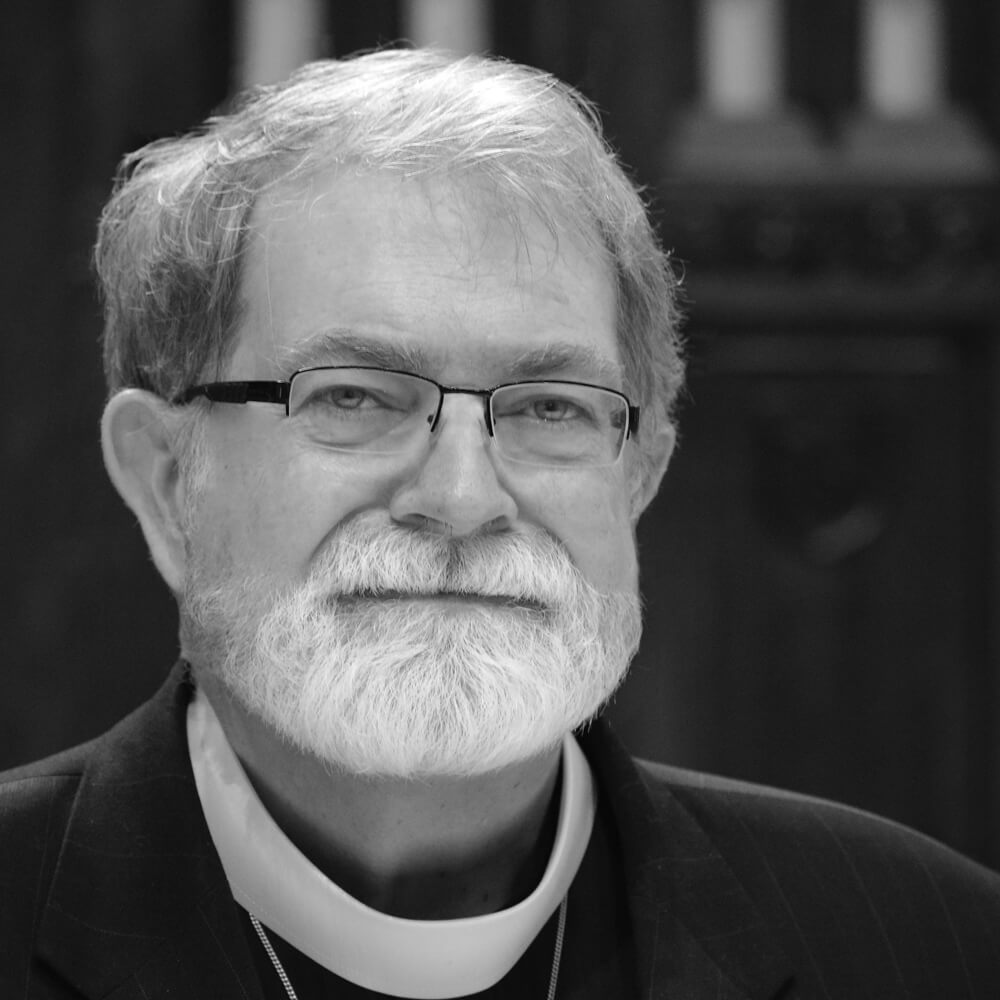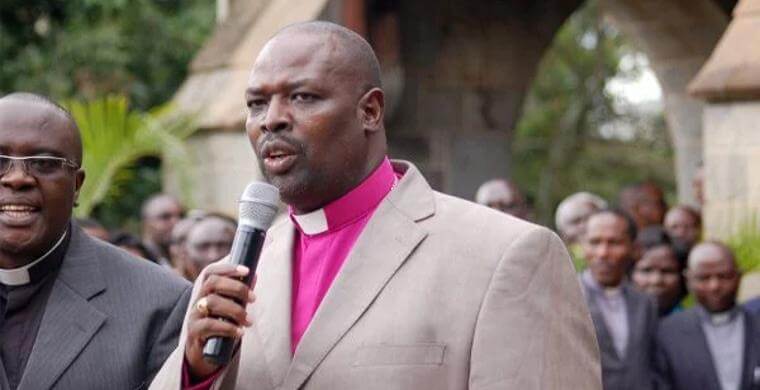Two weeks ago I wrote about how Biblically faithful Anglicans are flourishing at All Saints Cathedral in Nairobi Kenya. Shortly after this article was published, the Primate of Kenya, Archbishop Jackson Ole Sapit, announced that he would not be attending the Lambeth 2020 conference of Bishops. Archbishop of Canterbury Justin Welby then requested 1) a meeting with Archbishop Ole Sapit and 2) that he might be allowed to preach at All Saints Cathedral in Nairobi.
Those of you who read the article on All Saints Cathedral will recall how very clearly the Provost of the cathedral, the Very Rev. Sammy Wainaina, stated the Church’s Biblical position on human sexuality and the potential legalization of same-sex marriage in his Sunday bulletin.
Immediately following the Archbishop of Canterbury’s visit to All Saints Cathedral, the Primate of Kenya in this video (with the Provost of the Cathedral standing in the background) restated with equal clarity the Biblical position of the Anglican Church of Kenya (ACK) with regards to the following:
- That government corruption in misappropriating funds is stealing from the poor, compromising social services and a sin by Biblical standards—and that the ACK will continue to preach against it. Note: This is the same position the Provost stated publicly in an earlier Sunday bulletin which I cited here. Where Biblically faithful Anglicans are flourishing at All Saints Cathedral, there is a consistent application of the Bible to moral issues of the day.
- With regards to the question about the Kenyan Supreme Courts recent decision against legalizing same-sex marriage, he applauds the Supreme Court for upholding the traditional view of marriage as between a man and a woman for life, for not introducing into the laws of Kenya a redefinition of marriage contrary to the teaching of the ACK;
- That the Church exists as a “corrective institution to tell us he right things to do,” in its relationship with the State, and will continue to do so;
- That everyone is welcome to come into the Church “as they are,” but the Church will not marry same-sex partners, nor will it ordain homosexual and lesbian persons into holy orders, because this would go against “the tradition of the Church” and the teaching of the Bible;
- The church exists to call people to repentance from anything the Bible describes as sin. The Church exists to proclaim the word of God, the Bible, so that people may hear it, have their hearts changed and repent.
The Archbishop’s comments are clear and courageous with respect to the clarity and authority of the Bible, the mission of the Church to proclaim the word of God until people repent, its relationship to the State and the culture, and the presenting issues of human sexuality and Holy Orders. Without citing Lambeth Resolution I.10 (1998), he provides all of the foundations which issued in that Resolution’s decision that marriage is reserved for man and woman for a lifetime, abstinence in all other cases, and that these standards also apply for Holy Orders (that is, for those in ordained leadership within the Church).
At about 3:00-3:37 in the video you can listen to what Archbishop Justin Welby says about the upcoming Lambeth Conference 2020. He says that the Lambeth Conference of Bishops has always been marked “by controversy” since it began in 1867. He notes that the Lambeth Conference scheduled for 2020 has not met since 2008. He notes that “When we are able to meet together rather than…not communicating, not meeting together we are able to listen to each other. And so we will see what happens in the Lambeth Conference when we get there.”
All of these minimal statements about the Lambeth Conference of Bishops are true. And if “listening” alone and as an end in itself was the highest virtue and function that we might expect of Anglican bishops, his appeal for meeting together might have some merit.
But as I and others have written elsewhere at great length, this is much less than what we expect of Bishops. Bishops in the Anglican Communion have a unique authority and responsibility to guard the faith and order, doctrine and discipline of the Church. It’s a principle and a vocation that goes all the way back to the great Ecumenical Councils of the undivided Church. Even farther back, we find it in the role and function of the Apostles themselves, with the elders, in the Jerusalem Council of Acts 15.
Beginning at 3:56 Archbishop Welby says “the Bible is clear,” and that “my own personal view, which I have stated on numerous occasions in public…is the traditional view of Christian marriage…which has always been the view of Christian marriage…”
But note what else he says and what he does not say:
- That he is also “deeply torn” on the traditional definition of Christian marriage as between a man and a woman for life, and that he confesses publicly that “I am equally convinced that it may be that I am wrong… and that “Anglican theological methodology never closes things down.”
- That, therefore, he believes that Marriage is a secondary issue over which Anglicans can agree to disagree;
- That he would approve the Church of England’s blessing of same-sex “unions” as a way to gain traction within English culture;
- That he approves the public, liturgical celebration of “gender-transitions” in rites approved by the Bishops of the Church of England that are almost identical to baptism;
One of the hallmarks of the East African Revival is from I John 1:7 “But if we walk in the light, as he is in the light, we have fellowship with one another, and the blood of Jesus, his Son, purifies us from every sin” (NIV). Surely, “walking in the light” means that the Archbishop of Canterbury should also have mentioned these significant concessions that he has made elsewhere—especially his concession that “within Anglican theological methodology” the Bible is never the final word.
Standing next to Archbishop Ole Sapit, Archbishop Welby appears to be standing with him on the issue of Christian marriage when in fact he is not on the same page. This makes his appeal to come to the Lambeth Conference of Bishops 2020 even more problematic, since the only possible purpose would be to “listen” without “closing things down” on false teaching that cannot be squared with the teaching of the Bible or the tradition of the Church.
As Stephen Noll and others have observed, the “Anglican theological methodology” that will frame Lambeth 2020 will almost certainly result in the nullification of Lambeth Resolution I.10 (1998)
Truth be told, this is why Archbishop Ole Sapit and other Archbishops and bishops will not attend Lambeth 2020. The die has already been cast.
Archbishop Welby concludes by saying “that I continue to work with and in our changing culture in England to listen very carefully to and to be full of love for those who disagree with me.” Bravo. We should all seek to have such qualities as our Savior himself had toward those with whom he disagreed—like the rich young ruler in Mark 10 whom he looked upon with such love even as he knew he would turn away!
But Christian love is not incompatible with telling the truth, the whole truth and nothing but the truth. According to the Apostle Paul, “Speaking the truth in love” is a sign of Christian maturity (Ephesians 4:15). As John Stott observes, even this is not the best definition of the Greek verb aletheuontes, which means literally “truthing in love” and includes the notions of maintaining, living and doing the truth.
Historians have noted that, from the beginning of the Lambeth Conference of Bishops, the Archbishop of Canterbury compromised this gathering from the council it should have been to the conference it became. Historians agree that this compromise was driven by the internal politics within the the Church of England. Lambeth 1998 was a watershed moment when the overwhelming majority of Bishops in the Anglican Communion (especially from the Global South) spoke prophetically ahead of time into the sexual chaos that continues to consume Western culture.
How long must the global governance of the Anglican Communion remain hostage to the internal politics of the Church of England and its culture?
Isn’t it about time for the Communion to be led by Bishops who walk in the light, “truthing in love” (Eph 4:15)?

Canon Phil Ashey is the President and CEO of the American Anglican Council


